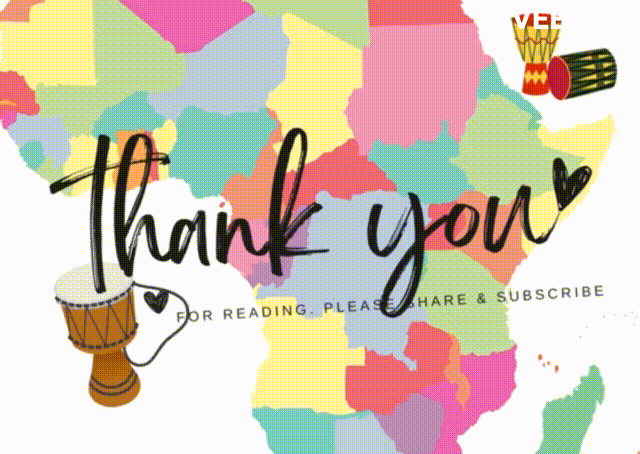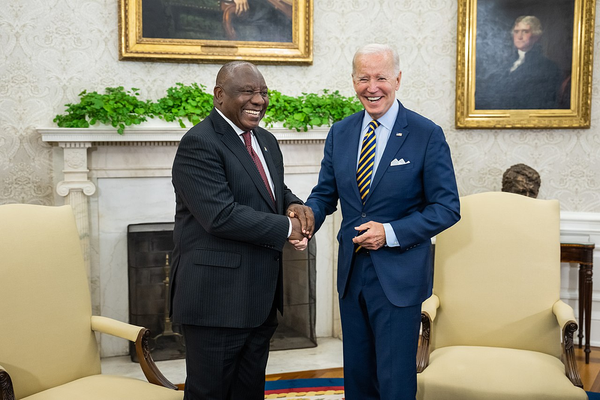Africa’s Growing Food Crisis: A New Scramble For The Future Of The Continent.
Together, these agricultural and carbon credit deals have ignited talk of a “new scramble for Africa.” In some countries, foreign companies are controlling up to 20% of the land through long-term agreements, leaving local communities in a precarious position.

There Is Hunger In The Land.
Africa is facing a monumental challenge: how to feed a rapidly growing population. By 2050, more than 2.4 billion people will be living on the continent, at the moment, many African countries are already struggling to provide food for their people. Out of the current 1.5 billion residents, about 10% experience severe food insecurity—meaning they often go entire days without eating. Millions more live in uncertainty, unsure where their next meal will come from.
Economic challenges like currency devaluation, inflation, and trade barriers are worsening the food crisis in West and Central Africa, with Nigeria, Ghana, Sierra Leone, and Mali being the hardest hit.
Staple grain prices have risen by 10% to over 100% compared to the five-year average, driven by currency inflation, transport costs, and ECOWAS sanctions. Countries like Ghana (23%), Nigeria (30%), and Sierra Leone (54%) are facing major price volatility.
The region’s heavy reliance on imports, combined with rising costs and economic struggles, is straining food supplies. Cereal production for 2023-2024 is down 12 million tons, with 2% less available per person than last season as reported by the World Food Programme as of April 2024.
Sudan in East Africa is presently facing a dire food crisis, with 25.6 million people at risk of acute hunger and 13 regions of the country on the brink of famine. The violent civil war which broke out in April 2023 has caused the world's worst displacement crisis, straining resources and threatening regional stability.
This brewing crisis is why policymakers converged on Kigali, Rwanda, for the African Food Systems Forum, backed by the African Union. They discussed a 10-year plan aimed at transforming agriculture across Africa. The goal is simple: to fix the farms. Africa has about 33 million smallholder farms, producing 70% of its food, but yields are still some of the lowest globally. That needs to change, and quickly too.
Global Players Enter the Stage: Bill Gates and the UAE.

One of the most influential voices in this conversation isn’t an African farmer but an American tech billionaire—Bill Gates. He’s become the largest private farmland owner in the U.S. and strongly believes that industrial farming techniques used in the West can help solve hunger worldwide, including in Africa. His vision is that African farmers need to grow more food by using genetically modified crops, chemical fertilizers, and larger, market-oriented farms—similar to U.S. farming methods.
However, applying this model to Africa isn’t without its challenges. In countries like Zambia, where Gates’ initiatives have been implemented, results haven’t always been positive. Zambia embraced new commercial seeds and fertilizers, but a recent drought wiped out half of the maize crop, leaving millions at risk of food shortages. Critics argue that these industrial methods make farmers dependent on expensive seeds and fertilizers while also depleting the soil over time.
Meanwhile, countries like the United Arab Emirates (UAE) have been making land acquisitions across Africa as part of their efforts to secure their own food supply. With more than 56 agreements already in place, the UAE has been targeting fertile lands in Ethiopia, Sudan, Zimbabwe, and Angola. Projects such as producing thousands of tonnes of rice and avocados are aimed at reducing the UAE’s food deficits.
While these deals help the UAE ensure its food security, they often stir controversy in Africa. Local communities rely on these lands for their livelihoods, and some see these acquisitions as “land grabs,” with foreign investors prioritizing their own needs over the interests of African farmers.

The Rise of Carbon Credits: A New Opportunity or Exploitation?
Beyond food security, foreign interests are also tapping into Africa’s vast natural resources in another way—carbon credits. Sheikh Ahmed Dalmook al-Maktoum, a Dubai royal, has struck massive deals that give his company, Blue Carbon, control over vast areas of African forests. These forests can then be used to generate carbon credits, which companies and countries can buy to offset their emissions under international climate agreements.
Blue Carbon’s deals cover huge portions of Zimbabwe, Zambia, Tanzania, and Liberia, equating to an area larger than the entire UK. But just like the food security deals, these carbon offset projects are raising concerns. Local communities often rely on these forests for essentials like food and fuel, and many argue that these deals strip them of their rights without offering meaningful environmental benefits.
Critics warn that if these carbon markets aren’t tightly regulated, they could end up producing “rubbish credits,” allowing major polluters to greenwash their activities without reducing actual emissions.
A New Scramble for Africa’s Land and Resources?
Together, these agricultural and carbon credit deals have ignited talk of a “new scramble for Africa.” In some countries, foreign companies are controlling up to 20% of the land through long-term agreements, leaving local communities in a precarious position. As Kenya’s president, William Ruto, once said, Africa’s carbon resources are an “economic goldmine.” And while governments see foreign investment as essential for growth, it often comes at the expense of vulnerable rural populations.
Organizations like the Alliance for Food Sovereignty in Africa have been critical of foreign involvement in the continent’s agricultural policies. They argue that wealthy donors like Gates, along with big agribusinesses, are pushing an industrialized model of farming that prioritizes profit over people. For many smallholder farmers, this means being forced into expensive farming techniques that expose them to climate shocks like floods and droughts.
The Global Climate Context: Africa's Role in the Fight Against Climate Change.
Beyond the economic opportunities these deals present, Africa’s vast natural landscapes are increasingly viewed as key to the global climate crisis. The continent is home to 20% of the world's remaining tropical forests, making it crucial in the fight to reduce carbon emissions and curb global warming. For countries outside Africa, securing access to these carbon sinks through forest preservation and carbon trading presents an attractive solution to meet international climate targets.
However, experts caution that without robust safeguards, these agreements could backfire. Overexploitation or poorly regulated carbon projects might harm Africa’s delicate ecosystems, leading to biodiversity loss and irreversible environmental damage. With African governments already balancing economic development and climate commitments, the stakes couldn’t be higher. The outcome of these deals will determine not just the fate of Africa’s environment but also its standing as a global climate leader.
Looking Forward: A Balancing Act.

Despite the challenges, there’s optimism about what these deals could mean for Africa in the long run. Both carbon markets and new agricultural strategies offer a path forward—if they’re done right. Countries need the capital, and many governments see these agreements as necessary to finance climate adaptation and boost food security. Companies like Blue Carbon, in particular, are working to ensure transparency in how carbon offset projects are managed, promising to benefit both the environment and local communities.
At the same time, innovative agricultural technologies—like indoor farming being developed by companies in the UAE—could transform food production in regions where traditional farming methods are failing. If these new systems are implemented sustainably, they could help ease Africa’s growing food crisis.
But there are still pressing questions: Who stands to gain the most from these deals? Will Africa end up restricting its technological progress just to serve as a carbon absorber for wealthier nations? With Africa’s population rapidly increasing, the stakes are incredibly high. Whether dealing with foreign land acquisitions or carbon offsets, finding the right balance between growth, food security, and local empowerment will be key to shaping the continent’s future.

Thank you for reading. If you enjoyed this article, kindly subscribe to our weekly newsletter: "News From Around The Motherland," to stay updated on opinions, articles and in-depth explorations of diverse African subjects.




